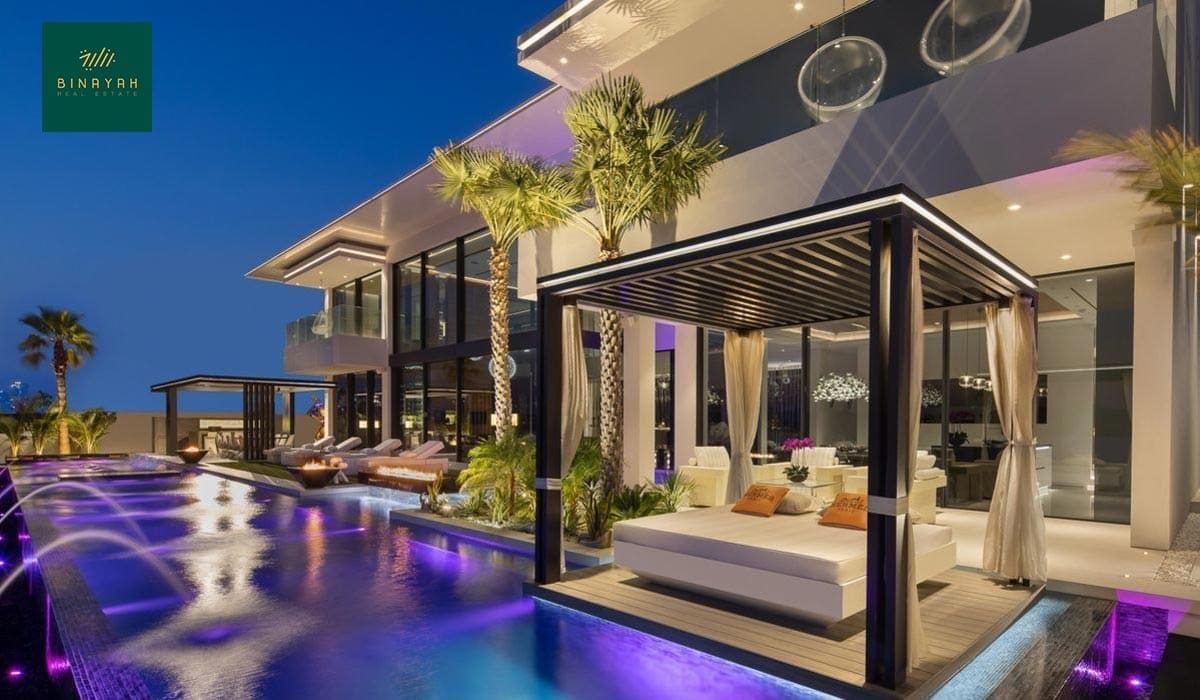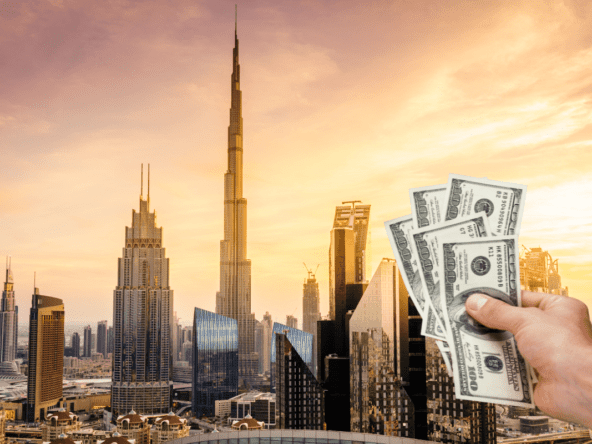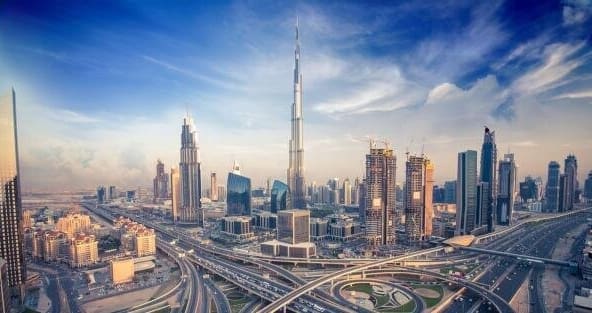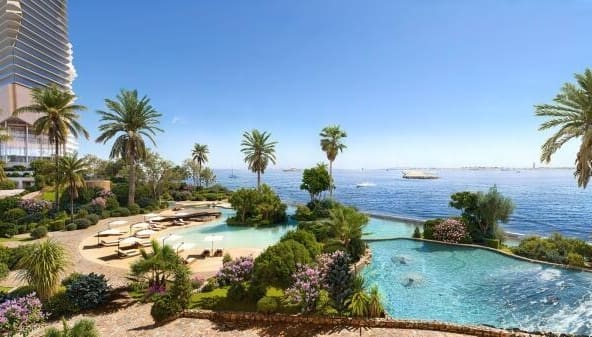Dubai is a well-known real estate market with a wide range of assets for sale, including flats and luxury houses. Since the Dubai government revised the rules to allow foreigners to acquire dwellings and apartments, many individuals have wanted to invest in Dubai. Foreigners have various benefits when purchasing a house in Dubai, including a high potential for return on investment.
Hundreds of homes are available for investment in Dubai. Examples include villas, condominiums, apartment complexes, and single-family homes. If you want to buy a house in Dubai, you should spend some time investigating your options.
One of the best things about investing in Dubai real estate is that there are a variety of condominiums, villas, apartments, and residential types to fit everyone’s demands. This also means that individuals are not compelled to live in homes that do not suit their budget or preferences.
International investors seeking high return and high-income properties have taken notice of Dubai’s real estate market. These residences might be found in upscale districts such as Dubai Marina, Jumeirah Lake Towers, and other well-known locations. Our real estate professionals can also assist you in finding the best home loan rates. Visit https://www.uat.binayah.com/ to find the best locations at the best prices.
Types of Properties in Dubai
You can buy one of three types of residential homes in Dubai as a foreigner. Each of these Dubai properties belongs to a certain type of home or land. Before buying real estate in Dubai, you should undertake a thorough market study.
Freehold Properties
Due to the rapid rise of freehold residences, foreigners may now acquire property in Dubai more readily than ever before. Foreigners interested in buying a property in Dubai or investing in the UAE are more likely to look for freehold homes. United Arab Emirates residents have access to freehold properties, which can be rented, sold, or inherited if necessary.
Freehold property has been linked to relatively undeveloped expanses of land in addition to homes and flats. This allows landowners to construct anything they want on their property.
The property may be used for whatever purpose the investor wishes because the investor owns it outright.
Common hold Properties
Another type of property available to potential investors in Dubai is a commonhold. These are the principal condominiums, apartments, and non-residential units of a building. You have the sole right to buy, sell, or rent a property for the purpose of inheritance when you purchase a common hold property.
This is the same as owning a freehold property. While common hold dwellings are similar to flats, the owners are responsible for the care of the property as well as the use of common utilities. A real estate or property developer usually owns these structures.
Usufruct Properties
In the United Arab Emirates, usufruct is a common property system. This is commonly thought of as a long-term investment lease. The occupant of a usufruct property has no authority to alter or transform it in any way. A lease for usufruct properties might last for up to 100 years.
Identify Your Motive For Buying Property In Dubai
When buying home in Dubai, one of the most crucial considerations to consider is whether the property will be utilised for investment or personal purposes. The reasons for placing a personal property in Dubai are as follows:
1. Purchasing Property In Dubai For Investment Purpose
The real estate market in the United Arab Emirates is flourishing, and having a property in Dubai has various advantages. Examples include a high rental yield, a high market capitalization, and a well-defined corporate procedure. The majority of expatriates and foreigners in Dubai want to buy an inexpensive home with a significant return on investment. A thorough market research might help you get a good price on a Dubai apartment.
2. Purchasing Property In Dubai For Personal Use
Dubai has evolved into a significant real estate and commercial hub over time. Several expats from various parts of the world have made their homes in the city. For many foreigners working in low-wage occupations, property in Dubai is frequently regarded excessively expensive.
Things, however, have changed. Individuals who work in Dubai or run a business are increasingly inclined to own rather than rent their own residence. The government has eased property ownership restrictions, making it simpler for foreigners to buy property in Dubai.
If you want to live in Dubai, you should look for a location that is accessible to hospitals, supermarkets, restaurants, and schools. Raising a family in a developing and established city such as Dubai may be quite gratifying.
Factors To Consider Before Buying Property in Dubai for Foreigners
1. Location
When purchasing real estate in Dubai, location is one of the most crucial elements to consider. Those considering buying an apartment or a luxury property in Dubai should research the best regions for future real estate investment. Dubai Marina, for example, is connected to a unique set of amenities that allow people to enjoy a high-quality lifestyle.
As a result, investors should look for profitable chances. Finding such properties might take time; however, Binayah has compiled a list of the best real estate in Dubai in ideal locations that can provide foreign investors with a long-term return on investment.
2. Research and Analyze Market Stats
Choosing a specific venue might be difficult when there are so many appealing options. You must first do your own property market study to get the most return on your investment.
As an interested investor, you may also learn about current trends, predictions, and patterns in financial investment. Investors may be interested in newer Dubai investment projects. The more you understand about the UAE real estate market, the more advantages you will be able to obtain.
3. Tenure
Consider how long you plan to stay in the UAE before investing in real estate in Dubai. This is critical since it will assist you in calculating the total value of your potential return on investment. If you are unclear about your possible commitment or long-term goals in the UAE, however, renting a property is ideal.
4. Affordability
Affordability is one of the most important factors to consider when purchasing real estate anywhere in the globe. On a monthly basis, housing expenditures cannot exceed 25% of an individual’s total income. Furthermore, your budget should include for upfront charges. This might account for about 9% of the overall purchase price of the home. You must maintain track of maintenance bills and pay yearly service charges as the owner of a real estate property in Dubai.
5. Rental Yields
If you are thinking of renting out your Dubai house, think about the financial rewards. This will allow you to assess if the projected rental income would cover your payments, mortgage, and maintenance charges. Investors could expect a gross yield of between 5% and 9% in most cases.
6. Residence Visa
Property worth at least AED 1 million in the UAE might help you acquire a resident visa. It is probable that there will be rules in place. There are essentially two types of resident permits available in the United Arab Emirates. One of them is a six-month multi-entry. A two-year residency visa is the second option. Investors in real estate can sponsor residence permits for their families.
A property worth AED 5 million or more in Dubai that has been kept for 36 months or more and has no mortgage value attached might help potential expats or foreigners acquire a 5-year or longer residency visa.
Expenses Associated With Purchasing A Real Estate in Dubai
Purchasing a home in Dubai has a certain cost. It is critical that you have a clear understanding of all the costs associated with buying home in Dubai. This is critical for properly setting your budget.
- NOC fees: NOC fees are typically in the region of AED 500 – AED 5000. It can be paid to a real estate or real estate developer directly.
- Fees for registration: DLD may get about 4% of the total acquisition price of the property.
- The real estate agent’s commission is almost 2% of the buying price of the home.
Aside from the aforementioned expenditures, there may be other charges. They could be used in both the property developer’s office and the DVDs. You may also have to pay the property developer fees for a neighborhood or building.
If you do decide to take out a mortgage, you should research the terms & conditions of the residential mortgages offered to foreigners and expatriates living in Dubai. Other rules that the central bank should consider for the purpose of obtaining a mortgage are as follows:
- Foreigners or expats interested in investing in real estate worth over AED 5 million can borrow about 75% of the combined worth. Citizens in the United Arab Emirates, on the other hand, can borrow up to 80%.
- Initially, buyers can borrow roughly 65 percent of the total value of a real estate property priced at AED 5 million or higher. Citizens in the United Arab Emirates, on the other hand, can borrow roughly 70% of the property’s value.
- Expats who want to invest in or buy a second home can borrow roughly 60% of the entire value of the home.
- If you want to buy off-plan property, you will need a 50% deposit from both expats and UAE residents.
- The buyer’s debt-to-income ratio must not be greater than 50%.
- The term of the mortgage should not exceed 25 years. This is due to the age restriction.
- Foreign citizens have the option of applying for a specified loan balance, which should not exceed seven times their annual earnings or income.
Buying A Property In Dubai Via Real Estate Developers
When buying a house or apartment in Dubai, it’s critical to do your homework on the property developer and make sure they have a good reputation before signing a contract or agreeing to pay a certain sum for the property. This is done to ensure that your investment is sound and viable. Aside from that, a number of additional things you may need to do in order to establish a background when selling a home:
- Collect detailed information in writing for all fees that must be paid, as well as the prospective due date.
- It is critical to confirm that a builder has successfully registered with the appropriate regulatory body.
- Check the rates on some other properties that are similar. This will assist you in ascertaining if you have paid the correct amount.
- Consider the latest events. This will allow you to see what other buyers have to say about the individual residential properties offered by the property developer you’re considering.
- You should hire a lawyer with international experience in real estate purchases. This will enable you to better comprehend the estate process and ask pertinent questions.
Before you hire a property developer, make sure that the real estate brokers or property developers meet all of the criteria listed above. This will allow you to determine whether the property developer is properly licensed and operating. Furthermore, before making any financial commitment, you must evaluate and study the experiences of your prior clients.
Mortgage Financing & Home Loan Options in Dubai for Purchasing Property
Foreigners and expatriates in the UAE frequently look forward to purchasing real estate in Dubai. There are various choices for you if you do not have enough cash and want to buy a house in Dubai without the need for a down payment.
In the UAE, you can discover a variety of mortgage financing options from a variety of banks and financial institutions. This allows making a deposit to the supplier without having to use your own money.
However, before you invest, you must first determine which type of home mortgage will best suit your needs. Let us take a closer look at the current mortgage rates offered by major banking institutions for purchasing property in Dubai:
Bank Emirates NBD: Emirates NBD, one of Dubai’s most well-known financial organizations, offers mortgage and home loans for nearly AED 15 million. Loan-to-value (LTV) ratios of up to 70% are available for home loans and mortgages. There is also the option of becoming pre-approved.
HSBC: HSBC is another financial organization that offers house loans and mortgage solutions to potential real estate investors and buyers in Dubai. This lender accepts expatriates including foreigners with a monthly income of AED 15,000 to apply for a mortgage or house loan in the UAE.
Mashreq is another well-known UAE financial company that offers mortgages and house loans. Expats and foreigners residing abroad can get loans from the company. Employed and self-employed expats with a monthly salary of AED 15,000 are eligible for mortgages and house loans. Expats can buying home in Dubai in installments with this sort of financing.
Citizens of the United Arab Emirates can also obtain access to mortgage payments. It enables individuals to obtain house loans or mortgage payments for about 85% of the combined worth of any property they wish to buy. Foreigners and expatriates can also get loans for nearly 80% of the entire cost of the property. The loan/mortgage will be for a total of 25 years.
Foreigners Purchasing Properties in Abu Dhabi
In 2019, Abu Dhabi made various regulatory reforms aimed at attracting expats to the property market, including permitting expats from GCC nations to purchase freehold land and residences within the development zone. This was done in order to stimulate the economy by bringing in more foreign direct investment. Previously, expats were only permitted to possess floors and flats, but not land. Foreign nationals will be able to possess and obtain all genuine and in-kind interests in housing and construction properties within the investment zones, according to the new requirements in Article 3.
The 4 major systems for purchasing property in Abu Dhabi are listed below:
Musataha:
Mustaha agreements contain expat buyers to use, build, or alter an acquired dwelling unit for a set length of time. They can own the house for up to 50 years, and the contract with the involved parties can be extended for the same amount of time.
Ownership Deeds:
Expats who would like to buy a house are awarded ownership rights of the dwelling property for 99 years. Foreign house owners in Abu Dhabi, with the exception of land ownership, have complete control over the houses, villas, & apartments they purchase.
3. Long-term Rental Agreement:
The property is leased to the expat for at least 25 years on a long-term basis.
4. Usufruct:
For over 99 years, this arrangement permits expats to buy luxury residences, villas, and apartments in Dubai. During that time, however, the owner is unable to alter the premises or facilities.
Freehold Properties in Abu Dhabi
Expats can now purchase freehold residences in Dubai as a result of the new laws. Al Raha Beach, Saadiyat Island, Masdar City, and Yas Island are the greatest spots to invest in Abu Dhabi.
Extensions of Visas
Visa extensions are also beneficial to prospective expats who would like to buy a home in Abu Dhabi. In 2019, Abu Dhabi began awarding visas to foreign nationals who purchased real estate in cash, giving expats who had previously been hesitant to invest the opportunity to do so. This will strengthen Abu Dhabi’s economic competitiveness and encourage foreign talent to stay.
Affordability
Another factor encouraging international expats to buy a home in Abu Dhabi is the cost of living. When it comes to the price of accommodation, food, clothing, transportation, and entertainment, Abu Dhabi ranked 33rd out of 209 cities, according to the human capital consulting firm Mercer. Riyadh is ranked 35th, whereas Tokyo is ranked second, Los Angeles is 18th, Milan is 45th, and Paris is 47th.
Foreigners Purchasing Real Estate in Dubai
“How to buy a house in Dubai?” is one of the most frequently asked queries. Expat property ownership is permitted in Dubai in areas classified as freehold. This essentially means that external buyers can obtain freehold ownership rights rather than usufruct, leasehold, or 99-year restrictions.
The title deeds must be issued by the Dubai Land Department. Furthermore, there is no age limit for buying home in Dubai. Downtown Dubai, Dubai International Financial Districts, Business Bay, Discovery Gardens, and other freehold neighborhoods in Dubai are among the most popular.
Foreigners Owning a House in Sharjah
Sharjah implemented unique real estate regulations for expat property ownership in 2014. Non-GCC members could buy real estate in Sharjah if they could have a valid resident visa, according to the original changes. Expats might buy up to 5 properties with this.
Expats can now buy real estate in Sharjah without a resident visa through usufruct for a max of 100 years after registering with the Sharjah Real Estate Registrar Office, thanks to recent legislative reforms. Foreign citizens can now invest in property in Sharjah’s Alijada, Al Mamsha, and Tilal City neighborhoods.
Expat Property Purchase Restrictions
Expats were unable to purchase property in Dubai at the turn of the millennium. However, according to updated property legislation, it has changed in recent years, and expats no longer face many restrictions when purchasing property in Dubai.
There are a few regions that are not completely freehold. Foreign purchasers are barred from these areas, but there are many other areas where expats can simply invest. Furthermore, there are special variables that encourage property purchases in Dubai.
To Invest In Dubai, You Need Not Require A Special Residency
There are no rules to consider, such as foreign buyer permissions. Purchasing property in Dubai is a very simple process due to the lack of limitations. Many properties in Dubai are purchased as freehold, although leasehold properties allow you to own property for 30 to 99 years.






